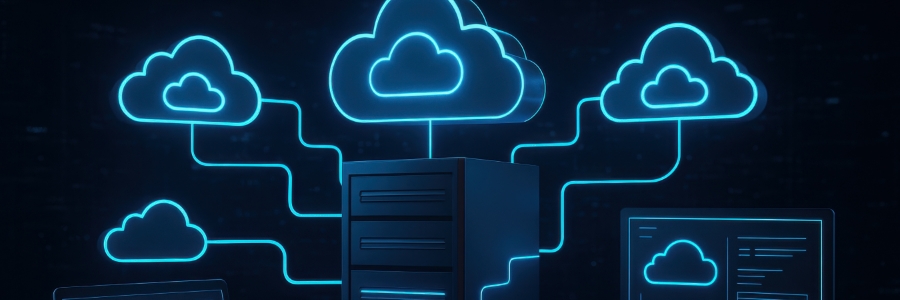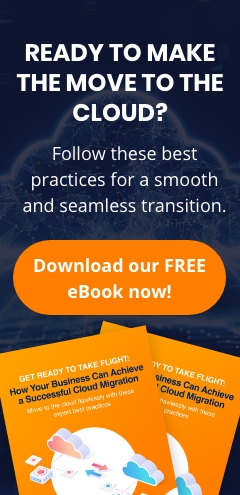When backing up your business’s data to the cloud, one of the most important concepts to understand is the shared responsibility model. This idea defines the division of security and compliance duties between you, the cloud customer, and your cloud service provider (CSP). Many small businesses assume that CSPs are required to handle all the security for your data and are liable for its safety, but that’s not the case.
If you use cloud-based backups, your CSP secures the cloud infrastructure, but you’re responsible for managing user access, preventing malware infections, and configuring backup and recovery settings properly. As you are ultimately responsible for your data’s security, third-party data backup solutions may be required to bridge the gap and complete your security posture.
What does the cloud provider do in the shared responsibility model?
Cloud vendors such as Amazon Web Services (AWS), Microsoft Azure, or Google Cloud Platform take care of the physical and core infrastructure that powers your cloud environment. This includes data centers, networking hardware, data storage devices, and more.
These layers are managed by the CSP to ensure high availability, uptime, and baseline protection from hardware or environmental failures. However, everything above that layer — the parts of the system you configure and control — is your responsibility.
What you’re accountable for in the shared responsibility model
Your business is still responsible for a range of security and operational tasks, depending on the type of cloud service model you use: Infrastructure-as-a-Service (IaaS), Platform-as-a-Service (PaaS), or Software-as-a-Service (SaaS). Even in highly managed SaaS environments, you are always responsible for data classification, user access management, and configuration security.
As the cloud customer, you must manage:
- User account security: Enforcing strong passwords and multifactor authentication (MFA) to prevent unauthorized access
- Data protection: Encrypting sensitive data in transit and at rest to prevent interception and theft
- Application security: Patching software, managing third-party integrations, and configuring tools securely to address vulnerabilities
- Compliance and governance: Meeting data security regulation standards (HIPAA, GDPR, or PCI DSS)
- Backup and recovery: Setting up and managing your own data backups
Why this matters for your data backups
Misunderstanding the shared responsibility model can lead to major security gaps. For example, a cloud provider might ensure that their data centers are secure and that the base platform is patched, but if your team misconfigures a storage bucket or grants excessive user permissions, the exposure — and the consequences –- are yours to bear.
This is a bit of an oversimplification, but think of the cloud like your apartment building. The CSP employs a security system and a doorman, but you give the door code to strangers, prop your apartment door open, and leave your valuables scattered around your room instead of in a safe. Who is responsible if a theft occurs?
In the same way, simply uploading your data backups to the cloud is not enough to secure them from data loss, data breaches, and malware attacks. You still need to take deliberate steps to secure your environment.
What’s the worst that could happen?
Without oversight or data backup management software, you could face a variety of problems that will be nobody’s fault but yours:
- An employee configures data backups with the wrong share permissions, exposing private customer data.
- A critical app is left unpatched, creating a vulnerability for hackers.
- You assume backups are automatic, but find out too late they weren’t configured properly and now can’t be recovered.
Bridge the security gap with managed cloud data backup solutions
Data backup solutions are supposed to run quietly in the background until you need them, so keeping an eye on them at all times can be difficult. Fortunately, third-party data backup solutions automate the management of your cloud backups, making it easy to ensure integrity, security, and reliability.
If you’re not sure what is needed to secure your cloud backups, contact outsourceIT for a free consultation. We’ll assess your cloud provider and infrastructure so that we can provide tailored recommendations for your data backup security. We can also recommend, implement, and manage a personalized cloud data backup solution that covers your end of the shared responsibility model with minimal effort and cost.

